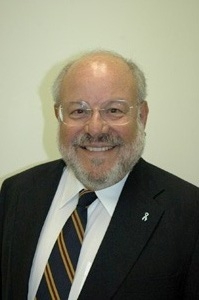The just-announced decision by Siemens, a major player in the nuclear industry, to withdraw entirely from nuclear power is a significant declaration by a corporation about nuclear power and the world's potential energy future.
"The chapter is closed for us," Peter Loescher, chief executive of the Germany-based engineering group, said Sunday. "We are no longer going to participate in taking responsibility for building nuclear power stations or financing them."
The Siemens decision follows that of the German government to, with the disaster at the Fukushima Daiichi nuclear plant complex, abandon nuclear power--to close the nation's 17 nuclear plants, all of which were built by Siemens--and pursue instead safe, clean, renewable energy led by solar, wind and geothermal.
flickr image By Michal Brcak
It comes after Loescher saying, when a deal was struck in 2009 for a joint venture with Rosatom, Russia's state nuclear company, that Siemens would become a "market leader in nuclear energy" challenging General Electric, Westinghouse and Areva.
It follows Wall Street's now long-standing reluctance to finance the construction of new nuclear power plants. Thus, the financial basis for President Barack Obama's push for new nuclear power plants in the U.S. is billions of dollars in taxpayer-supported loan guarantees.The U.S. government is also using the Tennessee Valley Authority, a federally-owned entity created during the New Deal, to be a leader in building new nuclear plants.
Although many people blame industry for the development of nuclear power, ever since it began in the 1950s, much of industry hasn't wanted to get involved. Governments, then and now, have been in the forefront of nuclear power.
Now, with Germany moving in the other direction, Siemens has followed.
The national nuclear laboratories set up in the U.S. during the Manhattan Project of World War II to embark on a crash program to build atomic bombs were key to nuclear power development in the U.S. With the war over, the laboratories constructed more nuclear weapons--thousands of them--and looked for other things nuclear to do. A huge vested interest employing thousands of people was created during the Manhattan Project and was seeking to perpetuate itself.
The Manhattan Project became the U.S. Atomic Energy Commission (AEC) after the war, and its first chairman, David Lilienthal, later would complain in a book, Change, Hope, and the Bomb , about the "elaborate and even luxurious [national] laboratories that have grown up at Oak Ridge, Argonne, Brookhaven" and the push at them for nuclear devices for "blowing out harbors, making explosions underground to produce steam" and other uses of atomic energy. atomic. Lilienthal, who left the AEC in 1950, in his 1963 book criticized "how far scientists and administrators will go to try to establish a nonmilitary use" for nuclear technology. He was very wary about nuclear power for safety reasons and the nuclear waste dilemna.
In 1957, the first nuclear power plant in the U.S. opened--built by the federal government. The AEC and the Navy's Division of Naval Reactors partnered in the construction of the Shippingport nuclear plant near Pittsburgh.
As it opened, Lewis Strauss, then AEC chairman, warned the utility industry that if it didn't built nuclear plants, the government would. That was the stick. The carrot was the passage in 1957 of the Price-Anderson Act . It was supposed to be something temporary to limit liability in the event of a nuclear plant disaster--a limit of $560 million in liability with the government paying the first $500 million. Price-Anderson remains law in the U.S. 54 years later with the liability limit now at $12 billion. Beyond that, people cannot collect for death, injury and property damage caused by a nuclear plant accident. The Chernobyl and now Fukushima catastrophes have demonstrated the losses could be in the hundreds of billions.
Having the Price-Anderson Act stay in place has been critical for government to get industry to stick with nuclear power.
GE and Westinghouse got involved with nuclear technology as contractors for the Manhattan Project. They became the Coke and Pepsi of nuclear power worldwide with 80 percent of nuclear power plants globally of GE or Westinghouse design or manufacture.
(Note: You can view every article as one long page if you sign up as an Advocate Member, or higher).





